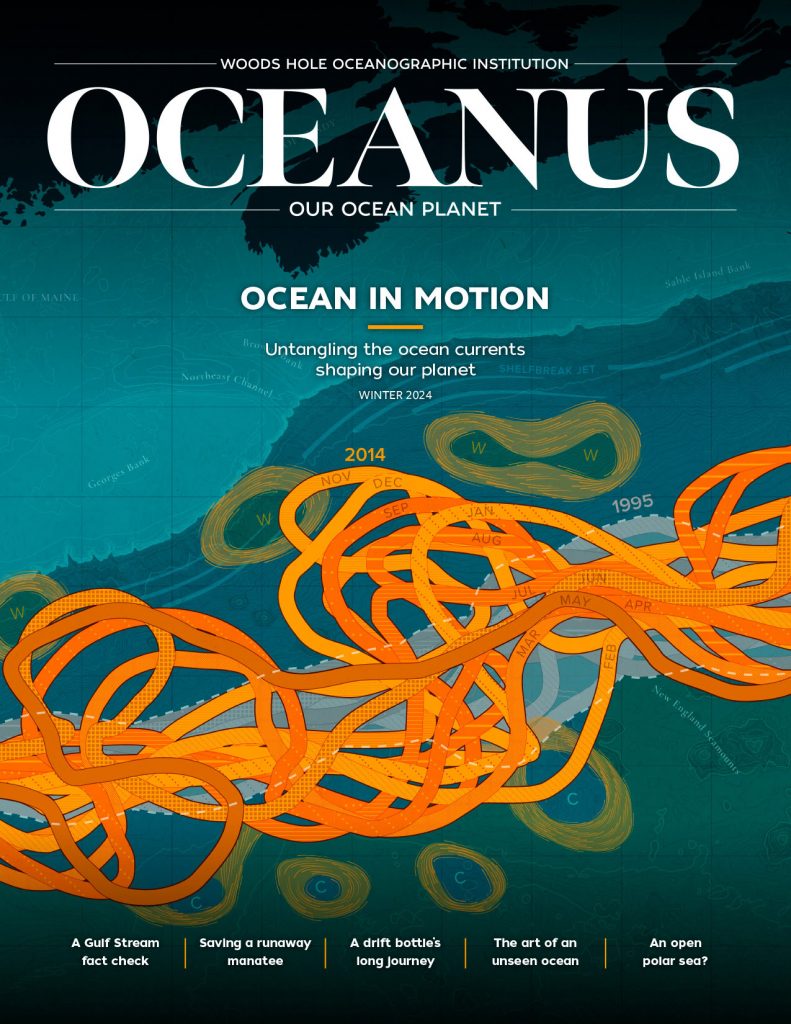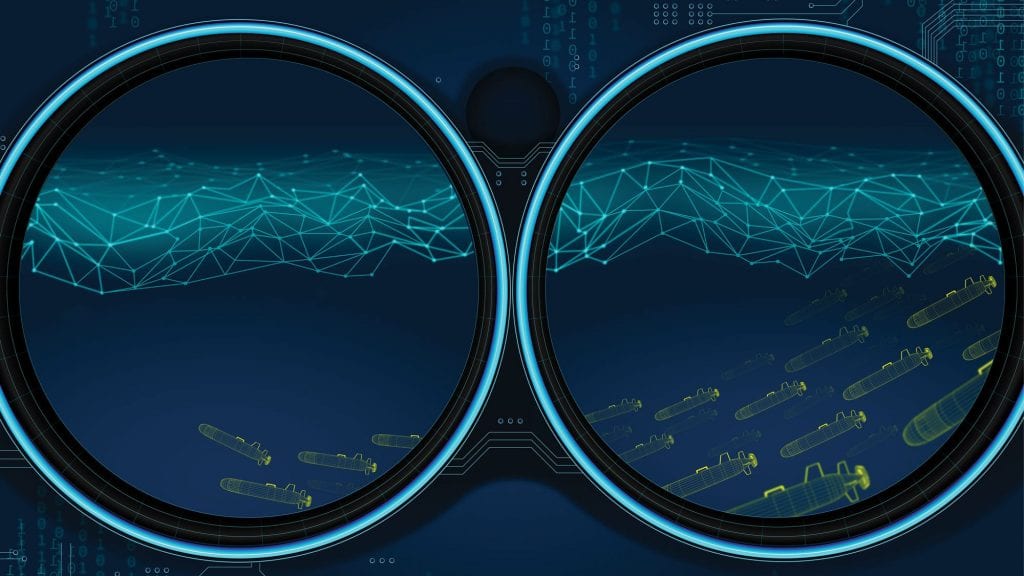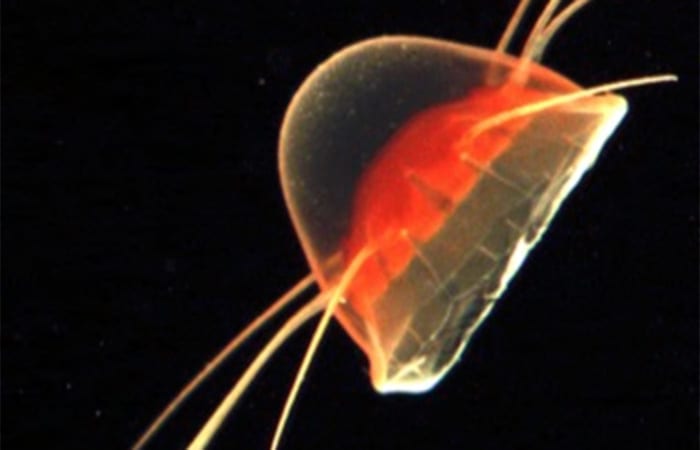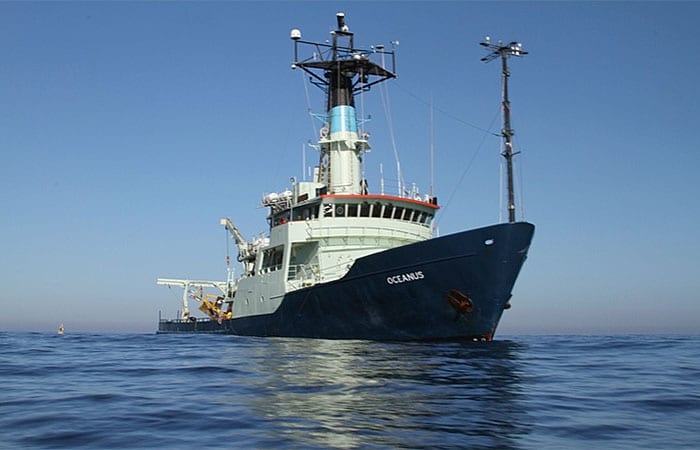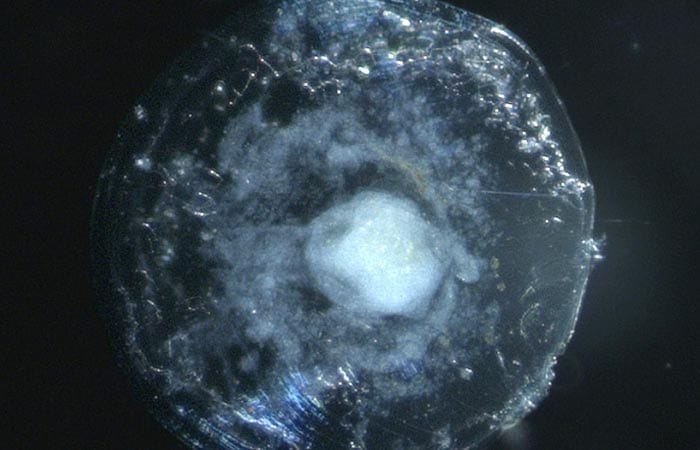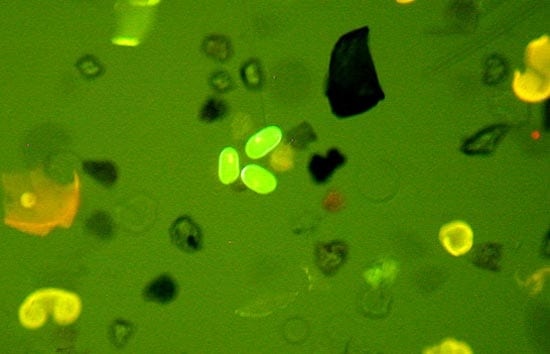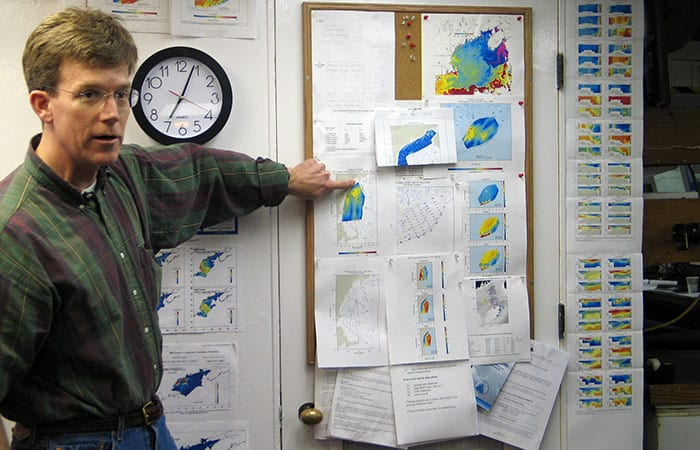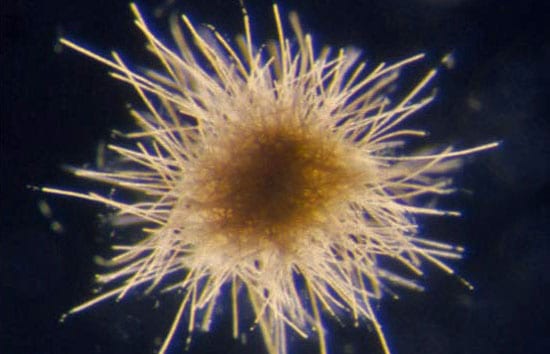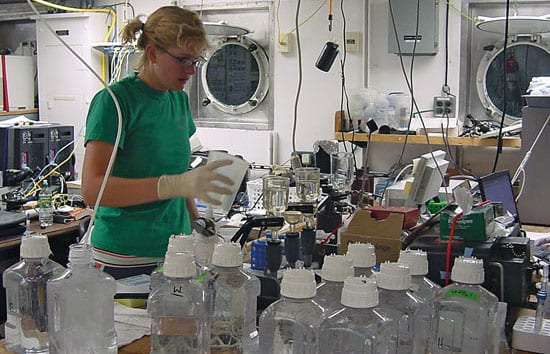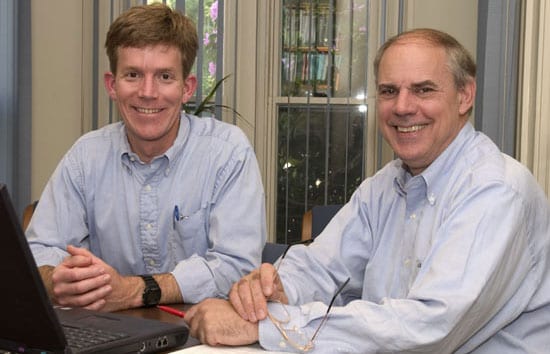Dennis McGillicuddy
Refine by
Date
Topic:
Article Type
Special Series
Author
Sea Ahead
Once upon a time, ocean scientists hung up cans on up a tree on Bikini Atoll to measure wave height in the Marshall Islands during nuclear weapons testing. Today, ocean technologies and data harvesting are heading somewhere big, from swarming bots, to more autonomous submersibles, and the miniaturization of ocean sensors
A Telescope to Peer into the Vast Ocean
There are more single-celled plankton in the ocean than stars in the universe. A new instrument is about to depart on a mission across the vast Pacific to capture images of what is out there.
The Mysterious Movements of Deep-Sea Larvae
The marvelous migrations of fish and whales through the deep sea have been hard enough for us humans to follow. But what about tiny organisms—many smaller than the dot beneath this question mark? How they…
Researchers Successfully Forecast 2008 Red Tide
A research team led by scientists at Woods Hole Oceanographic Institution (WHOI) successfully predicted the widespread harmful algal bloom that materialized this year in New England coastal waters. The forecasting method offers officials and shellfish…
WHOI Scientists Earn Laurels
WHOI geochemist Stanley Hart is the 13th recipient of the Arthur L. Day Prize and Lectureship, awarded by the U.S. National Academy of Sciences for making lasting contributions to the study of the physics of…
Ocean Microscope Reveals Surprising Abundance of Life
Towing an underwater video microscope across the Atlantic Ocean, two scientists found unexpected abundances of colonial cyanobacteria that fertilize the oceans with nitrogen. The bacteria may turn out to be “a crucial component” that stimulates…
The Oceans Have Their Own Weather Systems
From June to September 2005, oceanographer Dennis McGillicuddy and a team of more than 20 scientists from WHOI and five other marine science labs tracked an eddy named A4. It was the oceanic equivalent of a hurricane?a huge mass of water, spinning like a whirlpool, moving through the ocean for months, stretching across tens to hundreds of kilometers, stirring up a vortex of water and material from the depths to the surface. But unlike destructive hurricanes, eddies are productive.
Risks and Remedies from the Sea
Researchers from Woods Hole Oceanographic Institution, the Marine Biological Laboratory (MBL), and the Massachusetts Institute of Technology (MIT) have embarked on a novel collaboration to investigate harmful algal blooms, ocean-borne pathogens, and potential pharmaceuticals from marine sources.
